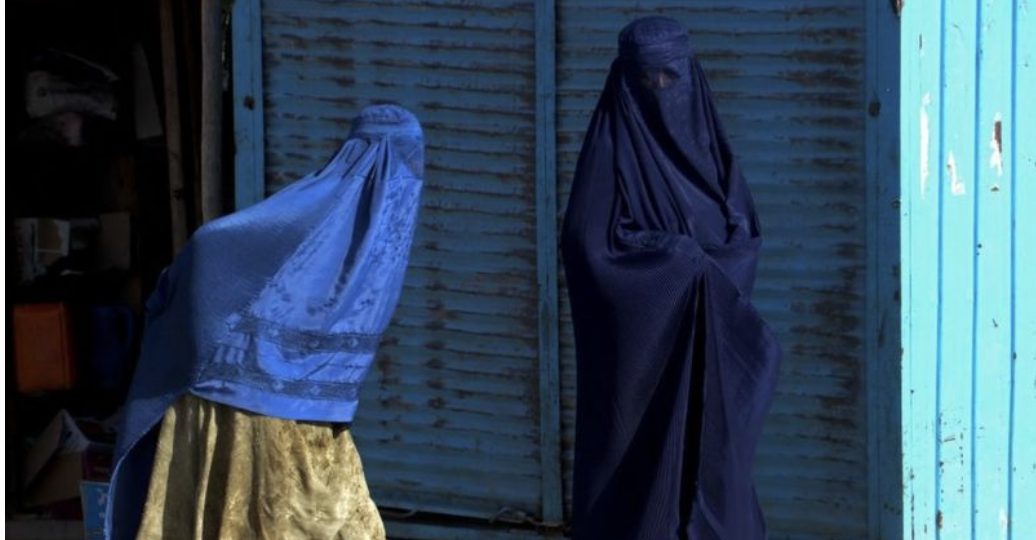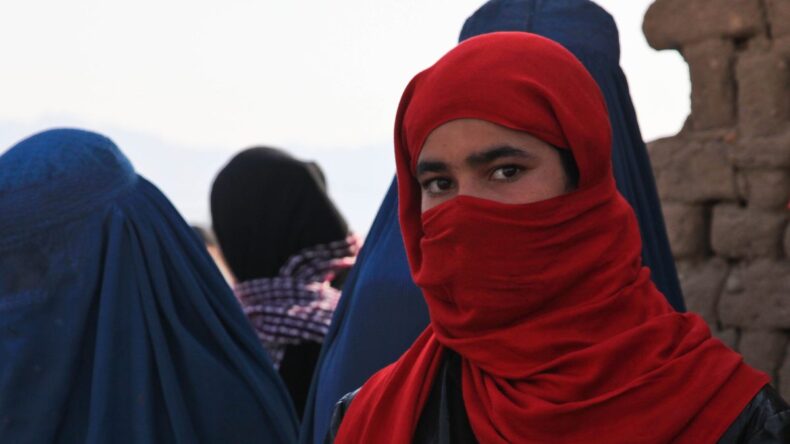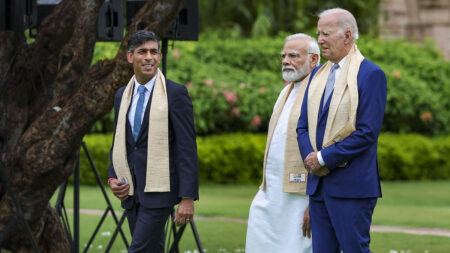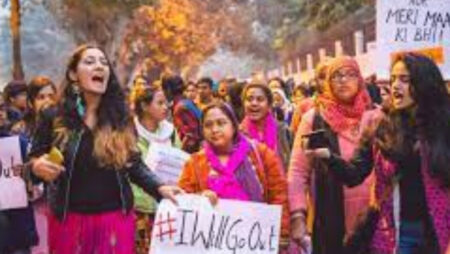As the world approaches the two-year anniversary of the Taliban’s return to power in Afghanistan, a haunting reality emerges once again – the relentless suppression of Afghan women’s rights. Gordon Brown, former British Prime Minister and current UN Special Envoy for Global Education, has stepped forward with a resounding condemnation, labeling the Taliban’s systematic abuse of women and girls a “crime against humanity.”
Table of Contents
The Unrelenting Struggle of Afghan Women
The Taliban’s rise to power in 2021 has marked a disheartening regression in the status of Afghan women. The initial promise of a more tempered rule has given way to an unyielding imposition of strict Islamic law, effectively confining women to a life of seclusion and robbing them of their basic rights. The narrative of progress achieved during the two decades since the Taliban’s previous rule has been abruptly shattered.
Discrimination Amplified Under the Taliban
Gordon Brown’s words reverberate as he characterizes the Taliban’s actions as a form of “gender apartheid.” The magnitude of the constraints imposed on Afghan women is staggering – they are systematically stripped of education, employment, and even the freedom to move about in public spaces. This pervasive discrimination not only curtails individual opportunities but also represents a sweeping assault on the very essence of human rights.

The Plea for Justice
Brown’s plea for justice is unequivocal – the International Criminal Court (ICC) must play a decisive role in holding the responsible parties accountable. The profound and deliberate mistreatment of Afghan women calls for a global response that matches the gravity of the situation. The ICC’s mandate to address crimes against humanity places it in a pivotal position to pursue justice on behalf of the silenced women of Afghanistan.
Diplomacy and Sanctions: A Dual Strategy
Within the framework of condemnation, Brown advocates for a dual approach: diplomacy and sanctions. The persuasive power of Muslim-majority countries is highlighted as they step forward to advocate for women’s rights within the context of Islamic principles. This concerted effort underscores the need for a united global front to counter the Taliban’s regressive ideology.
Women’s Voices Unsilenced
In the face of adversity, Afghan women are refusing to be silenced. Recent protests against the closure of female-oriented businesses, such as beauty parlors and salons, demonstrate their resilience and determination. Despite the oppressive conditions they face, these women are redefining the narrative, demanding their voices be heard and their rights be restored.
An Overwhelming Case for Accountability
Brown’s assertion that the evidence against the Taliban’s actions is “overwhelming” underscores the urgency of the situation. The United Nations is poised to release a definitive opinion on whether these actions qualify as a crime against humanity in a legal context. The undeniable gravity of the Taliban’s actions demands swift and decisive action.
A Call for Unity and Pressure
While diplomatic dialogue with the Taliban continues, Brown emphasizes the imperative of escalating pressure. The global community must send an unambiguous message that the erosion of Afghan women’s rights will not be tolerated. The nuanced approach of combining dialogue with pressure serves as a potential catalyst for the Taliban to reconsider their stance.
Looking Ahead with Determination
As the world commemorates the anniversary of Kabul’s fall and the subsequent resurgence of the Taliban, Gordon Brown’s impassioned plea reverberates. The struggle for women’s rights and gender equality in Afghanistan is far from over. The actions taken today will undoubtedly shape the trajectory of the nation and contribute to the broader global fight for justice and equality.
Empowering Afghan Women: A Collective Responsibility
Gordon Brown’s urgent call transcends national boundaries. It is a collective responsibility of the international community to rally behind Afghan women. The plight of Afghan women cannot be forgotten or ignored; their resilience in the face of adversity is a testament to the indomitable spirit of women everywhere.
Bridging Cultural Divides for Gender Equality
Central to Brown’s message is the role of Muslim-majority countries in advocating for gender equality within the framework of Islamic values. By dismantling cultural barriers and fostering a deeper understanding of women’s rights, these nations can pave the way for lasting change in Afghanistan and beyond.
Resounding Hope in a Bleak Landscape
In the midst of this grim reality, a glimmer of hope emerges. Afghan women, standing at the forefront of their struggle, refuse to be relegated to the shadows. Their courage and resilience are beacons of inspiration, reminding the world that even in the darkest of times, the human spirit can prevail.
In conclusion, Gordon Brown’s unwavering condemnation of the Taliban’s treatment of women as a “crime against humanity” demands immediate and unwavering action. The world must respond with a collective voice, refusing to allow Afghan women to suffer in silence. The struggle for equality and human rights marches on, and history will judge our response to this critical moment. As the global community rallies to confront this grave injustice, Afghan women deserve nothing less than our unwavering commitment to a brighter, more equitable future.













